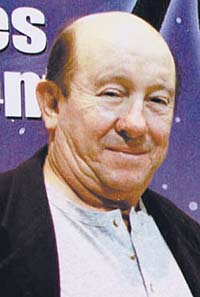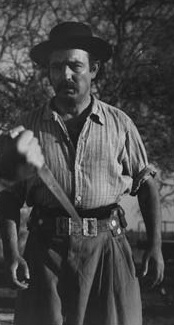
Mecha Ortiz was a classic Argentine actress who appeared in films between 1937 and 1981, during the Golden Age of Argentine Cinema. At the 1944 Argentine Film Critics Association Awards, Ortiz won the Silver Condor Award for Best Actress for her performance in Safo, historia de una pasión (1943), and won it again in 1946 for her performance in El canto del cisne (1945). She was known as the Argentine Greta Garbo and for playing mysterious characters, who suffered by past misfortunes in love, mental disorders, or forbidden love. Safo, historia de una pasión was the first erotic Argentine film, though there was no nudity. She also played in the first film in which a woman struck a man and the first film with a lesbian romance. In 1981, she was awarded the Grand Prize for actresses from the National Endowment for the Arts.

Laura Ana "Tita" Merello was an Argentine film actress, tango dancer and singer of the Golden Age of Argentine Cinema (1940–1960). In her six decades in Argentine entertainment, at the time of her death, she had filmed over thirty movies, premiered twenty plays, had nine television appearances, completed three radio series and had had countless appearances in print media. She was one of the singers who emerged in the 1920s along with Azucena Maizani, Libertad Lamarque, Ada Falcón, and Rosita Quiroga, who created the female voices of tango. She was primarily remembered for the songs "Se dice de mí" and "La milonga y yo".

Leo Fleider was a Polish born Argentine film director and screenwriter, and one of the influential directors in the Cinema of Argentina of the classic era.

Ulises Dumont was a prolific Argentine film actor, credited with over 80 appearances in film and countless others in theatre and television from 1964 until his death in 2008.

Fernando Siro was an Argentine film actor, film director and screenwriter.
La caída is a 1959 Argentine drama film directed by Leopoldo Torre Nilsson. It won the Silver Condor Award for Best Film was entered into the 9th Berlin International Film Festival.

La Raulito is a 1975 Argentine film directed by Lautaro Murúa and written by Rocío Dúrcal, Manuel Alexandre and Rafaela Aparicio.

Zulema Esther González Borbón, better known as Zully Moreno, was an Argentine film actress of the Golden Age of Argentine Cinema (1940–1960). She appeared in more than 70 movies, earning best actress awards from the Argentine Academy of Motion Picture Arts and Sciences and the Spanish Cinema Writers Circle.

Mariano Gastón Martínez is an Argentine model, actor and television producer.

Lito Cruz was a prominent Argentine stage director and motion picture actor.

José Carlos "Pepe" Soriano was an Argentine actor, director, and playwright.

Raúl Lavié nickname El Negro, is an Argentine entertainer prominent in the Tango genre.
Poor Butterfly is a 1986 Argentine drama film directed by Raúl de la Torre. It was entered into the 1986 Cannes Film Festival.

Antonio Cunill Cabanellas was an influential Spanish-Argentine playwright, theatre actor, director and instructor.

Susana Guenola Zubiri is an Argentine actress. She appeared in 30 films and television shows between 1945 and 1984. She starred in the film Three Loves in Rio, which was entered into the 9th Berlin International Film Festival.

Pepe Arias was an Argentine actor and comedian.

Cecilio Madanes was a Ukrainian theater director, set designer, and producer. He was one of the leading figures in Argentine theatre from 1950 through 1960. Madanes founded the Teatro Caminito.
María Esther Corán was an Argentine actress. She starred in films such Fúlmine (1949), El nieto de Congreve (1949), La melodía perdida (1952), Marta Ferrari (1956) and El ayudante (1971). One of her best known roles was in the 1961 TV series Viendo a Biondi, co-starring Pepe Biondi. In 1997 she was honored with the Día del Actor award for her 50-year career.

Raúl del Valle was a Chilean film and theatre actor who performed for most of his career in Argentina.
Mario David was an Argentine film director and screenwriter. He directed and wrote 12 films between 1971 and 1996.

















